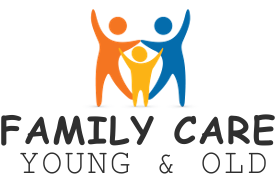Pay close attention to the children’s playhouse
Kids are usually generous when it comes to spreading germs, which get transferred around a playroom quicker than a racecar at the Indy 500, no matter how tight-fisted they are with their toys. Before reaching for the toys, make everyone stop at the sink to avoid inviting unwelcome visitors (in the form of germs) into your child’s playroom. Make disinfectant wipes with your new playroom buddies and use them to clean germ hotspots like walls, shelves, toy chests, drawer handles, and closet knobs – wherever small hands come into contact (which is practically everything) -Family Healthy.
Allergic reactions should be avoided
Pet dander, dust mites, mold, and other indoor allergens and irritants are no laughing matter, especially if you or a family member has a history of asthma or allergies. Vacuuming regularly can help you get rid of dust mites, and you might want to invest in a vacuum cleaner with a HEPA (high-efficiency particulate arresting) filter, which captures dust mites and other allergens. Sheets and pillowcases should be changed on a regular basis and cleaned in a washing machine with warm or hot water.
Stuffed animals should also be washed (or frozen overnight) since they might serve as a hiding spot for dust mites. Also, if your child exhibits symptoms of a pet allergy, try to keep your child and Fido in separate rooms makes a family healthy (and definitely out of the same bed).
Maintain a tidy kitchen
Foodborne disease is unpleasant for adults and older children, but it is seldom deadly. This isn’t the case for newborns and toddlers, whose immune systems aren’t equipped to deal with dangerous germs. As a result, when you’re in the kitchen, you’ll need to pay special attention to food safety. Before preparing any meal, make sure to properly wash your hands, but be extra careful when handling raw meat, poultry, fish, or eggs. Keep two cutting boards in your kitchen, one for proteins like meat and fish and the other for produce. And wash them after each use (make sure to get in any cracks or crevices, where bacteria love to hide). Disinfect worktops and cabinet handles often, and wash kitchen rags, sponges, and towels on a regular basis.
Refresh your knowledge of restroom manners
Even if you just go to the bathroom once a day, bacteria prefer to stick around long after the toilet is flushed. Despite the fact that there are more germs in the kitchen, the bathroom is home to a large number of them. Wipe down sinks, countertops, toilet seats. And tub and shower walls with cleaning cleansers or wipes to remove the welcome mat from under those germs.
Store toothbrushes at least an inch apart to prevent germs from spreading from one to the other. And, especially after an illness, replace toothbrushes on a frequent basis (germs can linger long after you’ve healed). Because unclean water can cling to all those small nooks (inside the duck’s bill, the boat’s portholes). Bath toys cleaned on a frequent basis. Once a week, wash them in a water-and-bleach solution, rinse thoroughly. And put them in a mesh bag or basket to allow them to air out fully.
Teach your children to not share
While you’ve worked hard to instill in your child the value of sharing and taking turns on playdates. There are a few exceptions to these germ-prevention golden laws to make a family healthy. Explain to your child that, while it’s fine to let her friends play with her toys. There are some items she should keep to herself. Like combs, brushes, and hats (sharing these items is the most common way lice spread from child to child); toothbrushes; cups, forks, and drinking straws; whistles, horns, and other objects you put your mouth on (good luck with that one! ); and, of course, tissues.
Everyone should be taught to utilize tissues
Once your child has learned the exquisite art of nose-blowing, teach her to dispose of soiled tissues promptly rather than leaving them on a table or on the floor. Because certain germs and viruses may survive for up to two hours outside the body. Removing tissues can make a significant impact. Make sure every room has a trash can, or educate her to flush used tissues down the toilet. This good practice also applies to sneezes and coughs (and to you!). Do you have any issues on hand? Teach your kids to sneeze or cough into the inside of their elbow.



Leave a Reply